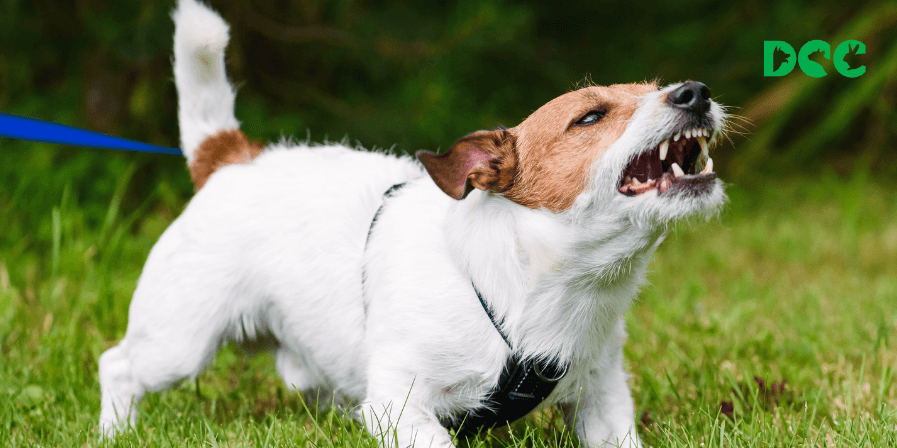Why do dogs bark at night?

It seems that many dog owners are troubled by the fact that their dogs start barking at night. There are two main causes of night cries: physical illness and psychological illness. In this section, we will explain the causes of night cries and possible diseases.
It seems that many dog owners are troubled by the fact that their dogs start barking at night. There are two main causes of night cries: physical illness and psychological illness. In this section, we will explain the causes of night cries and possible diseases.
The possible reasons for night time barking
There are two main types of nocturnal cries in dogs, behavioural and disease related, and the related diseases vary depending on the age of the dog.
Also, the way the dog whines varies from breed to breed, but they seem to have learned what kind of voice to use to attract the attention of their owners. Observe your dog carefully on a regular basis, and if you have any concerns, consult an animal hospital.
When your puppy cries at night, he/she could be:
-
Seeking attention Dogs often yowl when they are seeking attention from their owners, such as when they want attention, are lonely, or want to be pampered. For example, if the family is busy in the morning and there is no one at home during the day, if the dog cries in the middle of the night, the family will wake up in a hurry, and even though the family thinks they are scolding the dog, in the end they are fulfilling the dog's wish. It's okay to leave it alone, but it can also be improved with proper training instead of just scolding.
-
Caused by congenital brain disease If there is a worrying change in behaviour, not limited to night time crying, there is a possibility of illness. If you feel that your dog's reaction is a little strange, such as occasional howling at night, or being absent-minded during the day, you may suspect a brain disease such as hydrocephalus. Hydrocephalus, for example, is a disease in which the cerebrospinal fluid that fills the inside of the skull increases abnormally, putting pressure on the brain and causing damage. Since the brain is the organ that controls behaviour and emotions, including the optic nerve, various symptoms may occur depending on the location of the pressure. It is possible for a dog to be fine during the day because there is a human nearby, but become anxious at night because no one is around and start yelping.
When an adult dog (6 months to 8 years old) cries at night. It could be:
-
Attention-seeking behaviour. Just like puppies, adult dogs may cry at night as a way to seek attention from their owners, such as “I want attention”, “I'm lonely” or “I want to be pampered”. In addition, just after being sick, they may pretend to remain sick and purr incessantly in order to be taken care of, just as when they were sick.
-
Separation anxiety Separation anxiety is an anxiety disorder in which a dog feels an extreme fear of being separated from its owner and is unable to stay at home quietly. They become anxious when their owners are away, day or night, and may develop behavioural problems such as constant yapping, breaking furniture, and roughhousing.
-
Pain Frustration It is caused by pain such as arthritis, injury, or itching such as dermatitis and that causes night time barking.
-
Epileptic seizures Idiopathic epilepsy is common in adult dogs between the ages of 1 and 6 years old (epilepsy from brain tumours is seen in older dogs). Epilepsy is a paroxysmal condition that can also cause convulsions, loss of consciousness, and incontinence on top of night time barking.
-
Endocrine system disorders Dogs with endocrine disorders such as hyperthyroidism or hypoadrenocorticism may cry at night due to pain or discomfort.
-
Dementia In the case of senior dogs, night cries may be caused by dementia. Symptoms of dementia are similar to those of human dementia, such as getting lost, going in the wrong direction, losing track of family members, reversing day and night, and increasing toilet failure. Night cries are caused by this reversal of day and night.
Symptoms to watch out for:
If you see any of the following symptoms in addition to night time crying, it is recommended to take your dog for a check-up to the veterinarian, as he might be ill.
-
Suddenly starts to yelp loudly like he was having a seizure In adult dogs 1-6 years old, it could be a seizure caused by epilepsy.
-
Different size of pupils Your dog may have a congenital brain disease such as brain tumour or hydrocephalus.
-
He is wobbly on his feet There is a possibility of brain disease or internal organ disease.
-
Lack of appetite
-
Vomiting There is a possibility of internal organs' diseases.
-
Your dog gets lost, or goes in different directions
-
Your dog loses track of your family
-
Your dog wakes up early in the morning, and cannot sleep at night
-
They do something different from what they are used to do There is a possibility of age-related dementia.
Consult with your vet immediately in order to manage the situation well in time.


 How can we help?
How can we help?